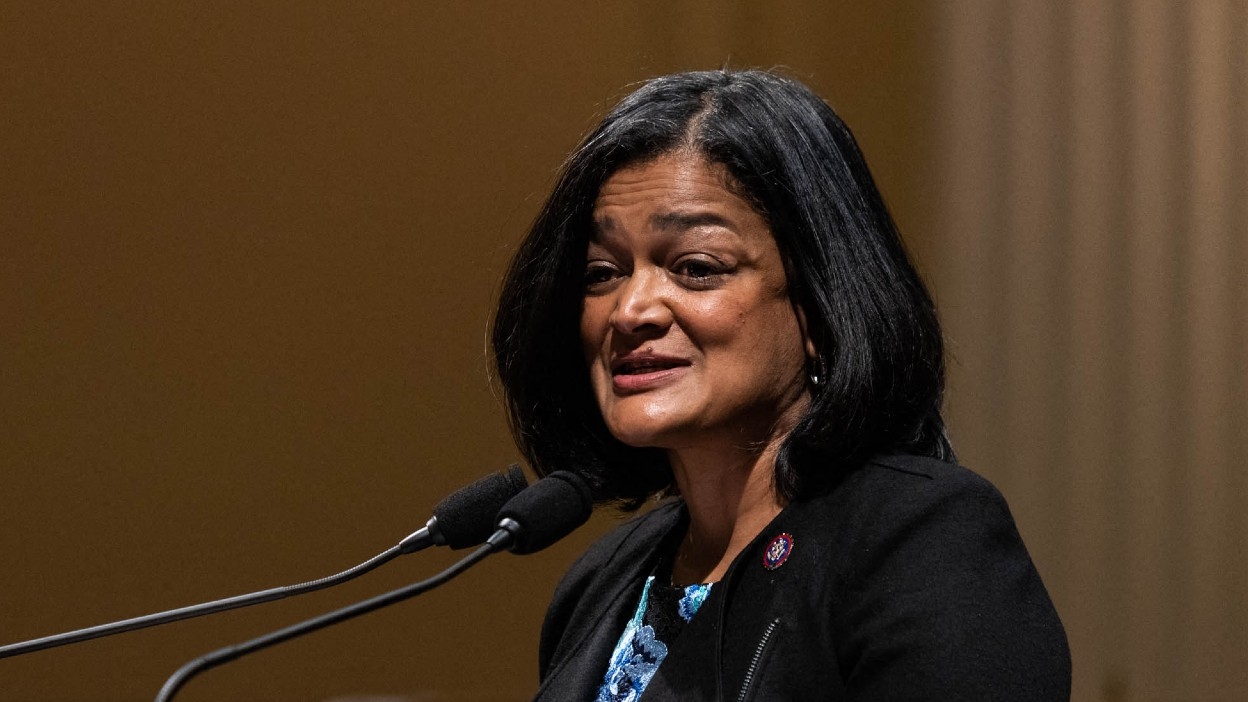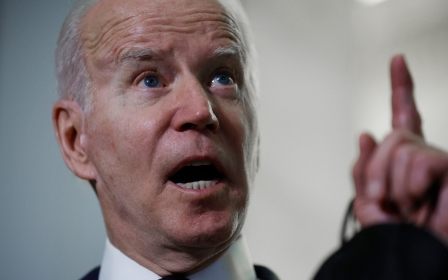US: Progressive lawmakers introduce bill to cut militarism in foreign policy

US Congresswomen Pramila Jayapal and Barbara Lee have introduced new legislation that would promote diplomacy and non-military approaches to Washington's foreign policy, while reining in the president's ability to wage war and cutting down "bloated Pentagon spending".
If passed, the bill, titled the Foreign Policy for the 21st Century Resolution, would limit US military aid to governments that commit gross human rights violations, crimes against humanity, or genocide - "regardless of their political relationship to the United States government".
New MEE newsletter: Jerusalem Dispatch
Sign up to get the latest insights and analysis on Israel-Palestine, alongside Turkey Unpacked and other MEE newsletters
It also calls for the end of using broad sanctions as a tool short of waging war, reduce "wasteful" defence spending, and an end to "overt and covert regime change policies that fuel conflict".
The legislation was introduced on Wednesday by the two progressive lawmakers, and is co-sponsored by more than a dozen other House Democrats, including Andre Carson, James McGovern, Alexandria Ocasio-Cortez, Ilhan Omar, Ayanna Pressley and Rashida Tlaib.
It has also been endorsed by more than 30 civil society organisations.
It "puts us on the right track and addresses many of the national security challenges that we face by ensuring that we no longer favor militarism and war over diplomacy and peace", Jayapal said in a statement.
US militarism and 'forever wars'
The bill comes amid a broader conversation on Capitol Hill about what have been referred to as the "forever wars" - the conflicts in which Washington has engaged since the 9/11 attacks in 2001.
According to a report from Brown University's Costs of War Project published last year, the US-led "war on terror" has killed nearly one million people globally and cost more than $8 trillion since it began nearly two decades ago.
Another report from the project noted that over the past 20 years, at least 37 million people, mostly civilians, have been displaced from Afghanistan, Iraq, Pakistan, Yemen, Somalia, the Philippines, Libya and Syria - countries largely targeted by America's "war on terror".
'The post 9/11 wars taught us that perpetual war takes countless lives, wastes trillions of dollars and does not make us any safer'
- US Congresswoman Barbara Lee
"The post 9/11 wars taught us that perpetual war takes countless lives, wastes trillions of dollars and does not make us any safer," Lee said in a statement announcing the bill.
"To combat the challenges we face around the globe - like climate change, global health, and poverty - we should be investing our resources away from tanks and drones and towards the needs of people."
Lee was the sole member of Congress that voted against the 2001 Authorization for the Use of Military Force (AUMF), which gave then-President Bush the authority to strike the perpetrators of the 9/11 attacks anywhere in the world.
While the Biden administration has worked to end these "forever wars", most notably with the withdrawal from Afghanistan last August, the congresswomen pointed out that the president must work to end other conflicts in which the US is involved, including the war in Yemen.
The bill "returns war-making power to Congress from the hands of the executive branch, which has taken enormous liberties to intervene militarily in other countries without congressional authorisation or public debate", Jayapal said during a webinar on Wednesday hosted by WinWithoutWar.
"I think we see this right now with the war in Yemen and we have been pushing the Biden administration very hard on ending the humanitarian crisis that is happening in Yemen."
Limiting executive war powers
Over the past year, US lawmakers have put forward several pieces of legislation that would aim to cut the Biden administration's war powers.
Senators Chris Murphy, Bernie Sanders and Mike Lee introduced legislation last year that would curb the executive branch's authority to issue arms sales, deploy troops, and declare national emergencies without congressional approval.
Similarly, Senators Tim Kaine and Todd Young introduced a bill that would put an end to the 1991 AUMF, which approved the Gulf War, and the 2002 authorisation, which preceded the US invasion of Iraq.
However, neither bill has passed the Senate, with Young and Kaine's legislation hitting a snag in December, as Congress worked to pass the country's annual defence spending bill.
Biden has stated his support for some of these efforts, saying he would approve of ending the 2002 authorisation for Iraq, but has not commented on the larger, wider-ranging 2001 authorisation passed in the wake of the 9/11 attacks.
Middle East Eye delivers independent and unrivalled coverage and analysis of the Middle East, North Africa and beyond. To learn more about republishing this content and the associated fees, please fill out this form. More about MEE can be found here.





